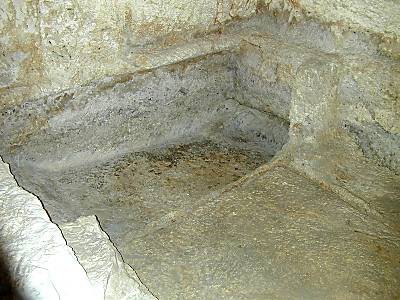Christianity is an Eschatological Worldview
Pop culture tells us that waiting is for losers, why not seize the day and have your best life right now? Admittedly, patience, persistence, perseverance are not my favorite words. They convey yearning, unsatisfied expectations and unrequited love. While Augustine advised “Patience is the companion of wisdom”, waiting is always proportionately difficult to the object of one’s passion. Accordingly, a milestone of maturity is met when a child learns to delay gratification. Remember as a teen anticipating your driver’s license? The wait seemed interminable. Rites of passage creep ever so slowly. Yet one finally arrives at adulthood and then ponders, “Is this all there is?” Christianity answers this question with a profound negative. “But our citizenship is in heaven, and from it we await a Savior, the Lord Jesus Christ” (Phil. 3:20).
Despite the sentiments of those who relegate the book of Revelation to the first century, Christianity is a profoundly eschatological faith. It’s inescapably so. New Testament scholar Gordon Fee writes, “The theological framework of the entire New Testament is eschatological.”[1] The Greek word for the end is eschaton, in this context meaning when God brings our present age to consummation. There is a tension inherent in the Christian worldview that eclipses all the yearnings of adolescence. It is the groaning of creation itself (Rom 8:22). Skeptics of the bible err when they pose the problem of evil, even natural evil, as contradictory. For it is not as if God has ignored it. Evil was served notice at Calvary and we await it’s eviction at the eschaton. Revelation chapter twenty assures the believer it is imminent and given biblical prophecy’s unrivaled record of literal fulfillment our confidence is deserved. Evil will not stand long in God’s economy.
The Jews in Jesus’ generation had an eschatological worldview. They believed they lived on the very threshold of time, when God would miraculously intervene into history and bring peace and justice. The source of their hope was scriptural. The new covenant spoken of by Jeremiah will be realized (Jer 31:31–34; 32:38–40). Sin and disease will be vanquished (e.g., Zech 13:1; Isa 53:5). An era of prevailing righteousness (e.g., Isa 11:4–5), when humanity will peacefully coexist (e.g., Isa 2:2–4) and even the law of the jungle will be supplanted by love (e.g., Isa 11:6–9). They were justified in their hope but the majority missed the mark. I can certainly sympathize with their error. After all, the supreme God, creator of the universe, had exclusively entrusted them with his written revelation. Surely as His people they were first in line?
The Jewish Eschatological Hope
The Eschaton
(Satan’s Time) |
(The Messianic Kingdom) |
| Sin
Sickness Demon Possession Evil triumphs |
Righteousness
Health Holy Spirit Peace and goodwill |
The Son of Man will come with the clouds of heaven. In the presence of the Ancient of Days, He will be given dominion and glory and a kingdom, so that all peoples, nations, and men of every language will worship Him. His dominion is an everlasting dominion that will not pass away, and His kingdom is one that will never be destroyed. (Daniel 7:13-14)
God had in fact promised that a day was coming when “men from the nations of every tongue shall take hold of the robe of a Jew, saying, ‘Let us go with you, for we have heard that God is with you’” (Zec. 8:23). Their racial pride blinded them to the international aspect of that promise. But not merely pride, they were understandably frustrated. They had rebuilt the holy temple after subjection to the Babylonians and Persians only to suffer the supreme indignity by Antiochus Epiphanes slaughtering swine on the altar of God as an offering to Zeus. Thus a national myopia set in, the Jews saw themselves separate and supreme. Where this fails is in not seeing the underlying spiritual deception influencing these nations. We do not struggle against flesh and blood but against the spiritual forces of evil in the heavenly places. God wants to redeem people of all nations and races.
Eschatological tension reached fever pitch when John the Baptist announced “Repent, for the kingdom of heaven is at hand!” John the Baptist was widely regarded as a true prophet and stands squarely in the prophetic tradition that the Day of the Lord points much more to darkness than to light for those who think they have no sin (Amos 2:4–8; 6:1–7).[ii] Imagine the horror of the Pharisees and Sadducees when John called them a “brood of vipers” (Mat 3:7) and admonished them not to presume their favored status. Later Jesus himself used the same language (Mt 23:33). The Prophet Isaiah had listed specific miracles that only the true Messiah would do. Jesus set about doing each one (e.g., Luke 11:20; Matt 11:2–6) much to the chagrin of the offended religious leaders.
Jesus had announced that the kingdom was at hand (e.g., Mark 1:14–15; Luke 17:20–21) and authenticated himself with the correct signs. The Jewish apostles that made up the early church of course recognized this. Jesus wanted it to be known, even reading from the prophet Isaiah to confirm his intention. Luke records in chapter four “And the scroll of the prophet Isaiah was given to him. He unrolled the scroll and found the place where it was written,
because he has anointed me
to proclaim good news to the poor.
He has sent me to proclaim liberty to the captives
and recovering of sight to the blind,
to set at liberty those who are oppressed,
to proclaim the year of the Lord’s favor.”
(Lk. 4:17-19)
This was straight from Isaiah 61:1-2 and He also boldly proclaimed “Today this Scripture has been fulfilled in your hearing” (v.21). Yet it is quite telling that he stopped halfway through Isaiah 61:2 where “the year of the Lord’s favor” is followed by a comma then “and the day of vengeance of our God.” And there is the rub; the Jews wanted avenging yet Jesus stopped short. No one had understood that the suffering servant of Isaiah 53 and the political kingdom entailed two visits with an indefinite interlude reserved for the redemption of the heathen nations. This is where Judaism is still left hanging today, in fact, hardened until the fullness of the gentiles comes in (Rom 11:25). Sadly, they are still waiting “on him whom they have pierced” (Zec. 12:10) because they would not acknowledge His first appearance.
To be continued…
[1]Fee, Gordon D. ; Stuart, Douglas K.: How to Read the Bible for All Its Worth. 3rd ed. Grand Rapids, MI : Zondervan Publishing House, 1993, S. 145
[ii]D. A. Carson, “Matthew” In , in The Expositor’s Bible Commentary, Volume 8: Matthew, Mark, Luke, ed. Frank E. Gaebelein (Grand Rapids, MI: Zondervan Publishing House, 1984), 103.





